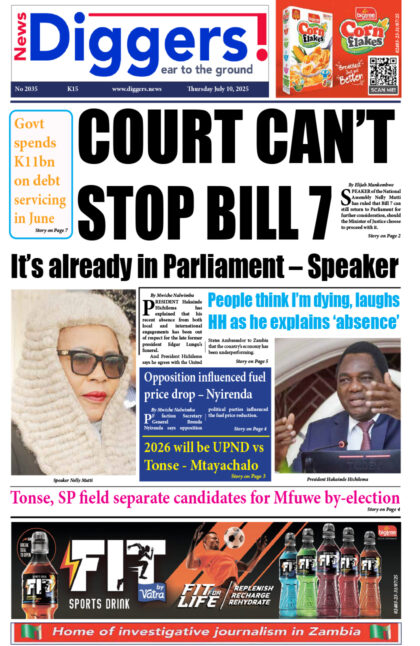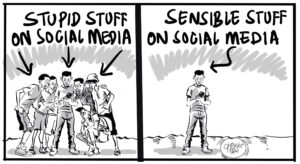Zambia’s economic conditions are ripe for an early general election because the country desperately needs political transformation, says former Commerce, Trade and Industry Minister Robert Sichinga.
Speaking on Prime Television’s Oxygen of Democracy programme, Monday evening, Sichinga observed that the country’s early general election held in 1991 was due to the same deteriorating economic conditions being faced today.
“We went for elections for almost the things that are happening right now, and to be honest with you, I had hoped that I won’t be sitting here talking about the things that we did in 1991, there were exactly similar to this. You could not even buy washing powder by the way, you could not even buy mealie meal at that particular time; something had to change, and the reason why we wanted multi-partyism is that so that you can have new ideas brought in by other political parties. How can a political party operate in this country today? The very thing we fought for, even the people that are fighting to retain power are people who were not even there in the first place, what did they fight for? What is their credibility? What have their got to offer in terms of what we fought for in 1990/91,” Sichinga said.
“We need to have a transformation! We need, if it means changing party that is what we fought for, so let’s do that! But I am saying whoever comes into office must be able to deal with these grave issues. There should go through transition from where they are, where we would be at whatever time in 2021 to where we want to be.”
He recalled that the economy under president Micheal Sata was growing at seven per cent annually compared to two per cent under his successor, President Edgar Lungu.
“When president Sata was in office, the performance of the economy was at seven per cent in terms of GDP growth; how did president Sata in his death destroy the economy? How did he do that? What happened after we left office in 2014? President Sata died in October; it is exactly what happened after cannot be attributed to president Sata, it cannot be attributed to me running the Ministry of Commerce of that period the three years I was in office. One year I was in agriculture and you can look at the figures at how we performed in agriculture; it was the highest, biggest performance of production up to that particular point. We did not have even space to keep the maize that we had grown in that particular year,” he recalled.
“This country is not a poor country; I can tell you that it is just poorly managed! If you look at the value of the resource the country has, it is huge, but what you are getting back is so little.”
Sichinga said President Lungu should lead by example in observing austerity measures.
“But the last time I read the President was saying that: ‘everyone else can observe austerity measures, but not me.’ And then, you can take a big team of people to China or wherever else he goes, or India. The team I see on social media was something like 45 people that went with him in India! The question I ask is: what difference would even half of that people make as far as the trip is concerned? Even if I left two-thirds of that team, what difference will it make towards the President succeeding in India or in China? What difference will it make? None whatsoever, I can tell you that. I have been on government delegations and I am asking myself why are 50 people on this trip? If you are a cadre, you want to go with the President and can show that I am very close to the President? For crying out loud! The country doesn’t have that money,” he added.
“We have to look at cost-cutting; I was responsible for this in ZCCM. When ZCCM was not making enough money, my job was to say now, cost-cutting what are we going to do? This is what we are going to do; you have to look at everything; you will not pay the managing director neither should the President be spared, he should be in forefront because he is leading by example.”
And Sichinga called for the enactment of the Planning and Budgeting Act.
“Our country doesn’t have the Planning and Budget Act, which is talking about economic planning and budget. If you look at this (2020) budget, there is no separation here between development budget and government running budget, you mixed them. If I was running it, I would separate them. If it is a development budget and it’s to do with things like roads, it is to with things like infrastructure, hospitals, schools and clinics, I will separate that. And I dedicate the money for that particular purpose and it is dedicated; you will not touch that money except for those particular projects and not at the exorbitant projects of corruption. I want something that is realistic. I will then look at what I am spending on government and start to chop that down so that it can be trimmed,” said Sichinga.



















